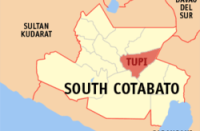SEPTEMBER 14 (Reuters) — At least nine people were killed in two bomb attacks on Sunday (September 13) in the northern Cameroon town of Kolofata, according to local officials, in what appeared to be the latest attack by the Boko Haram Islamist militant group from nearby Nigeria.
Regional prefect Babila Akaou said the two attacks took place close to the Latin neighborhood of the town before 9 a.m. (0800 GMT).
Army spokesman Colonel Didier Badjeck, who confirmed the death toll, said an investigation was underway amid diverging reports about whether the attacks were carried out by two teenage boys or two young women.
A man in the village said the attacks had been carried out by “two children”.
“There, there were two kids on the other side, washing their face. And I saw them, they were wearing djellabas and they had their hands in their pockets. And then they went different ways,” he said.
“That’s when a man from the village council came out — he just died — and asked him ‘where do you come from?” but he didn’t want to answer and he kept his hands in his djellaba. He asked again where he was coming from, but he didn’t answer. And that’s when the other one made a step forward and the other one went back. And it exploded straight away. And the second one was coming this way, I saw him when he passed by and I ran to tell people to move away but before I was done, I heard the second explosion here,” he added.
Kolofata lies close to the border with northeast Nigeria and has repeatedly been the target of attacks by Boko Haram. Cameroon is a major contributor to an 8,700-strong, Nigerian-led regional force expected to start operations against the Islamist group this year.
Badjeck said the army had also repelled an attack by Boko Haram on the town of Bargam in the Extreme North region of Cameroon on Sunday, killing 12 militants.
Boko Haram has stepped up its attacks in Cameroon since the West African country last year launched a crackdown on the group, which had previously used the Extreme North region as a base for recruiting and supplying its operations in northern Nigeria.







